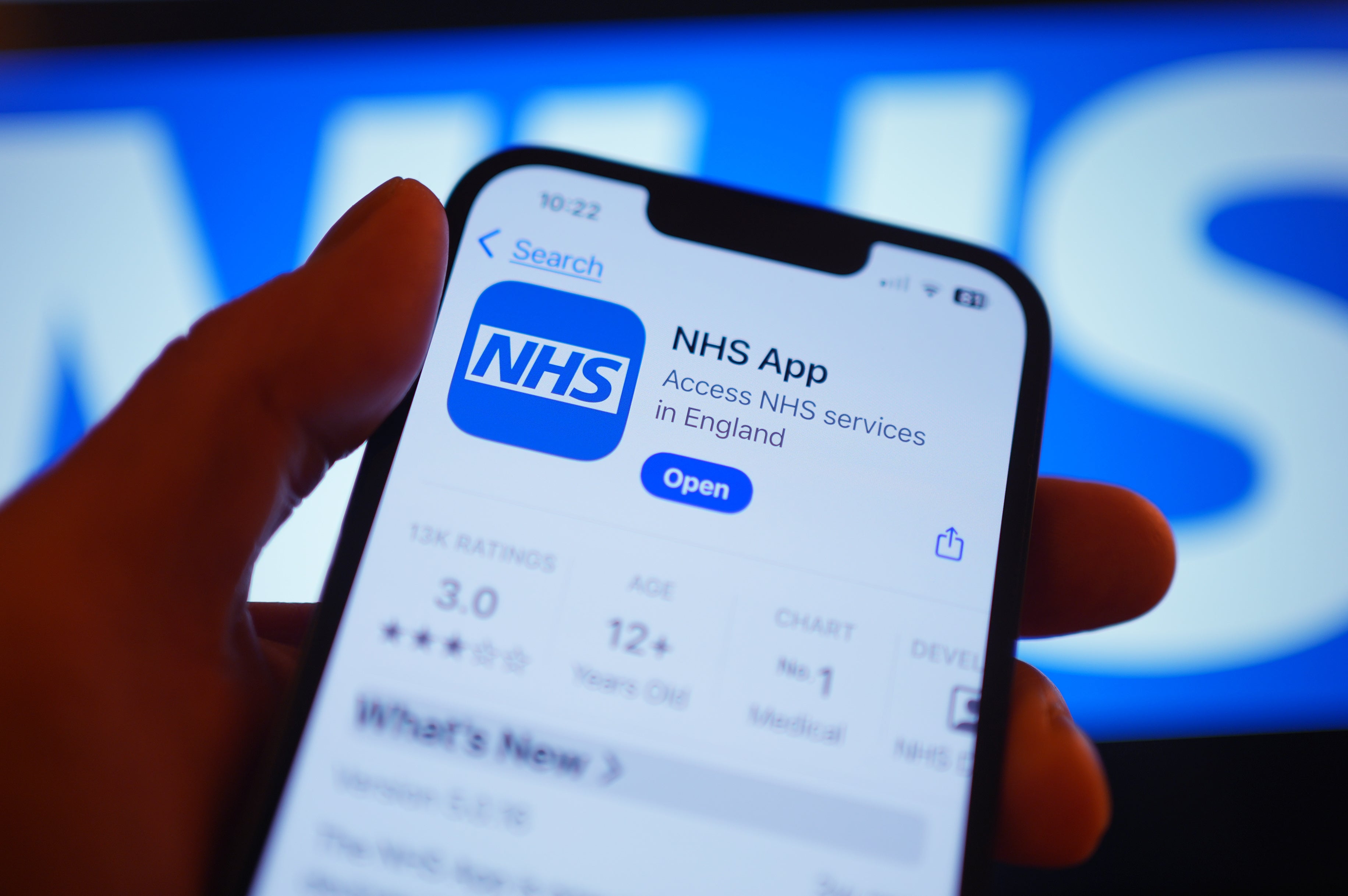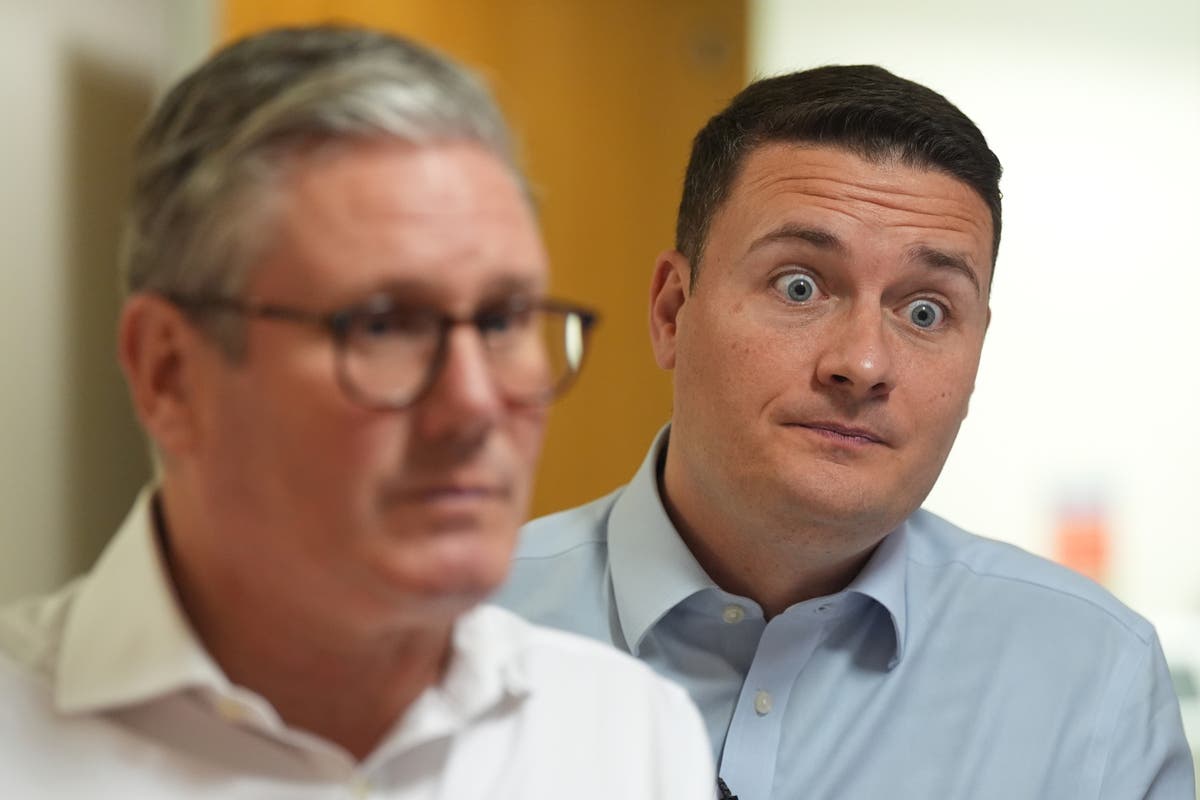Sir Keir Starmer will promise millions of extra NHS appointments in a bid to slash waiting times for treatment to 18 weeks by the next general election.
With pressure growing on the prime minister to deliver on his general election promises, he will set out a so-called elective reform plan aimed at taking millions of patients off waiting lists and tackling backlogs in hospitals.
But the British Medical Association (BMA) warned that “more is needed than relying on the goodwill of exhausted staff or new technology” to cut into the existing 7.5 million waiting list backlog.
BMA chair Professor Phil Banfield said: “Doctors have been just as frustrated as their patients by the lack of facilities to deliver care and want to bring waiting lists down, but the reality is that without the workforce to meet constantly rising demand, we will not see the progress we all hope for.”
Delivering a major speech on Monday, Sir Keir will set out how ballooning NHS backlogs have “left millions of patients languishing on waiting lists, often in pain or fear”.

Ahead of the speech, he said: “This elective reform plan will deliver on our promise to end the backlogs. Millions more appointments.”
The plan will increase the use of community diagnostic centres, letting patients access care such as scans, tests, and checks closer to home. It will also roll out a wave of new surgical hubs in a bid to help protect planned procedures from being impacted by seasonal and other pressures on the NHS.
It is part of Labour’s manifesto commitment to create 2 million additional appointments in its first year in power – the equivalent of 40,000 every week.
Sir Keir said it will lead to “greater choice and convenience for patients” and help staff “once again be able to give the standard of care they desperately want to”.
He added: “This is a key plank of our Plan for Change, which will drive growth that puts more money in people’s pockets, secures our borders and make the NHS fit for the future so that working people live longer, healthier, more prosperous lives.”

But Professor Banfield warned: “Only when the government has laid out its concrete steps to fully support the NHS workforce can we be confident that they have a plan which can achieve this target.”
Downing Street said extending the hours of community diagnostic centres and opening new and expanded surgical hubs will create 500,000 appointments each year, while other measures in the elective reform plan will free up millions more.
The government believes it can free up a million appointments currently being missed through greater use of AI technology, and a million more by giving patients greater choice over whether to have non-essential follow-up appointments.
They include increasing access to same-day tests and consultations to axe weeks-long waits between different stages of care.
Wes Streeting promised the plan would cut maximum wait times in the NHS from 18 months to 18 weeks, with the government adding that two-thirds of patients will be seen in under 18 weeks by the end of 2026 – a fall of more than 450,000 people waiting more than 18 weeks currently.
He said: “We inherited record long waiting lists, impacting patients’ lives and their livelihoods. Only the combination of investment and radical reform can turn this around, as we’re setting out today.
“Our Plan for Change set an ambitious target to cut maximum wait times from 18 months to 18 weeks, and we will achieve it by bringing care closer to home and give patients more choice over their treatment.”
NHS chief executive Amanda Pritchard welcomed the plan, saying it will “not only allow us to deliver millions more tests, appointments and operations, but do things differently too – boosting convenience and putting more power in the hands of patients”.
“This ambitious blueprint will build on our progress and support hard-working NHS staff to deliver faster routine care for patients with the aim of treating nine in 10 within 18 weeks by the end of this parliament,” she added.
NHS Providers, which represents NHS trusts, said leaders in the health service are already “doing everything they can to ensure patients are seen as quickly as possible”.
Interim chief executive Saffron Cordery said: “Long waits stem from years of underinvestment in services and severe staff shortages.
“Leaders right across hospital, mental health, community and ambulance services want to work with the government to tackle all long waits.”























+ There are no comments
Add yours